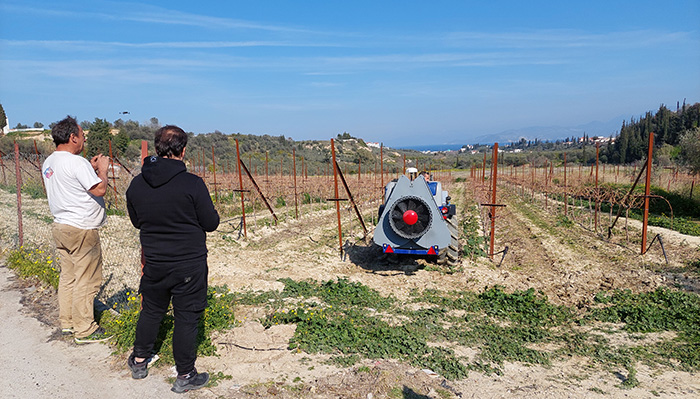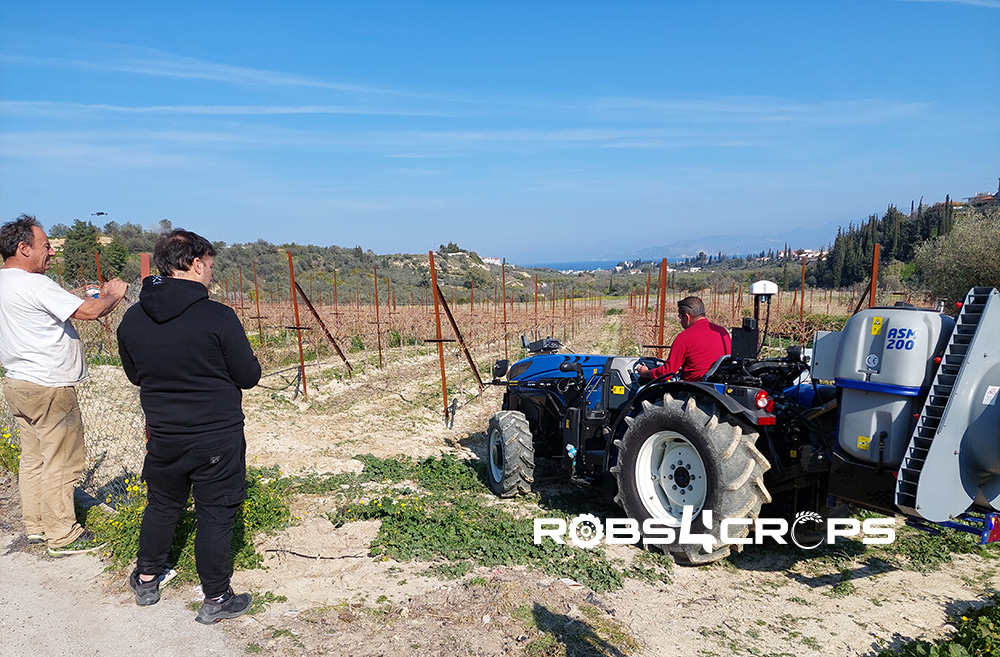The Greek pilot is dedicated to spraying table grape vineyards. Supermarkets and consumers have demanding expectations for quality, and the fruit is easily damaged by pests and illnesses. To protect the grapes, up to thirty applications of preventive treatments and foliar fertilizer are needed over the course of the growing season. Due to the restricted period for each spraying application, it is difficult to find a suitable workforce and the labour costs are high. That’s where a Greek pilot steps in, using modern technologies to revolutionize table grape spraying.

Can you describe the specific technology being used in your pilot?
The Greek pilot provides farmers with a solution to revolutionize their farming practices, using a CEOL robot and an autonomous retrofitted tractor that are paired with a lift-mounted sprayer. The technology includes applications that can be extremely valuable and profitable for farmers. An example is the Perception Unit, which is responsible for detecting chlorophyll on the vines. Upon identification, it sends a signal to the Smart Sprayer on the retrofitted tractor. This sprayer is designed to only spray where chlorophyll exists, so the nozzles of the sprayer work selectively. This is beneficial for farmers, as it helps save money on pesticides that would otherwise be wasted in conventional continuous spraying.
What challenges have you faced in implementing and adapting these new technologies in your Pilot’s operations? And how did you overcome those challenges?
We were fortunate to be given complete support from our partners while trying to deploy the new technology for the first time, understanding that difficulties were expected to come up. They invested their time to teach us how to implement and adapt the new technology, and we held several conferences to address all inquiries. The trial-and-error process took many hours in the field, but we eventually came to a successful conclusion with a three-day test run before staring the spraying season. Our partner from the Netherlands modified the tractor, and we made sure to examine it in the field.
How does this technology compare to traditional methods of farming in terms of cost, precision, and sustainability?
The retrofit tractor is ahead of its time in terms of technology. Its capabilities are immense, and there is still a great deal of potential to be discovered when it comes to the sprayers used during the season. In my opinion, we have more work to do until the full potential of this tractor is shown. Its precision, combined with the perception unit and smart nozzles, give it a major advantage over the conventional tractor and its consecutive spraying losses of pesticide are significantly reduced.

